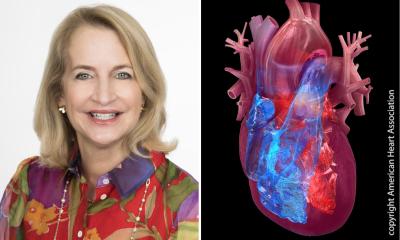Early Health - Investment or Cost?
Early Health, i.e. the early detection of diseases, will have to move into the centre of attention - this is the result of a survey by Total Healthcare Solutions (THS). Dr Susanne Michel, Associate Director at THS, underlines that in the future prevention will have to be considered an investment in healthcare rather than a mere cost factor. Decision makers from politics and the healthcare system in 12 European countries participated in the survey.

Due to demographic developments we will be recording a rise in chronic diseases over the next few decades. Particularly in Germany, the healthcare system is facing enormous challenges: in view of the ageing society and the concomitant increase in healthcare costs a viable financing model has to be designed which saves lives and improves the quality of life.
In 2002, in Germany alone cardio-vascular diseases generated costs of approx. EUR 35.5 bn. In Europe, the five most significant "cost engines“ are smoking, hypertension, alcohol, obesity, and high blood fat levels.
In Germany in 2002 an estimated 61,548 deaths were attributed to the consumption of tobacco. Each single case generated costs in the amount of EUR 3,800. Consequently, a decrease in the consumption of tobacco by 25 percent would also lead to a cost reduction of 25 percent – that is EUR 950 per case.
The interviewees were equally unambiguous and in agreement regarding the reasons why so far prevention has not received the attention it merits: prevention is an interdisciplinary issue – it touches for example on education and research – which means there is fierce competition for funds. Moreover, preventive measures are long-term investments which do not fit in the short-term approach prevalent in the world of politics.
18.12.2007





